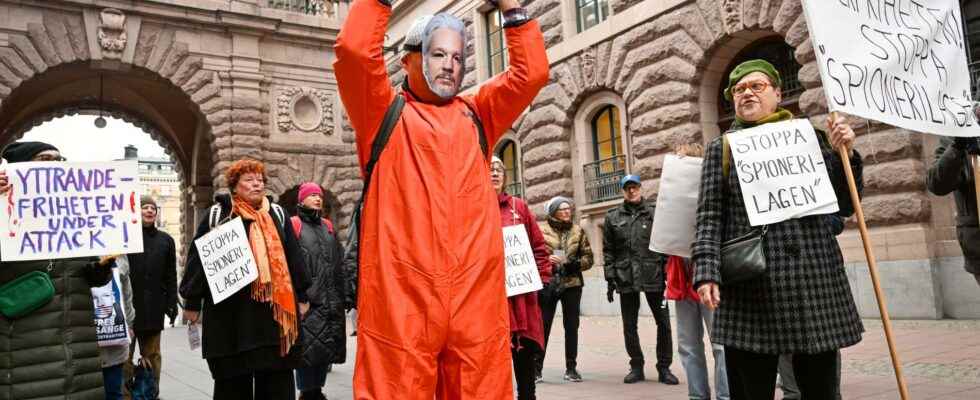Published: Just now
Today, the Riksdag makes a decision on the controversial changes to the law on foreign espionage.
Critics have warned that they threaten freedom of speech and the press.
– You open Pandora’s box, says the leftist Jessica Wetterling (V) in the debate.
The changes to the law mean that the crimes of foreign espionage, aggravated foreign espionage and disclosure of secret information in international cooperation are introduced into the criminal code.
The same offense is introduced in the press and freedom of expression legislation. Both freedom of communication and freedom of acquisition are limited in this regard.
This means that under certain circumstances it becomes a criminal offense to disclose secret information that occurs within Sweden’s international collaborations and that may damage Sweden’s relationship with another state or an international organization without authorization.
“Threatens democracy”
The critics have pointed out that it will also be a violation of freedom of press and expression.
Several media companies, including SVT and SR, warn that the proposed law threatens democracy and freedom of expression.
The Swedish branch of the International Commission of Jurists warns that the law will have a restraining effect on whistleblowers and other important sources for investigative journalists.
In the debate before the decision, only V and MP had objections. The Liberals, who at the first decision last spring voted no to the proposals, have now changed their mind and end up behind the majority.
– It will lead to enormous uncertainty about what you can publish, people will censor themselves and not dare to be a whistleblower, says Jessica Wetterling (V).
The Social Democrats’ Hans Ekström (S) defended the changes.
– It will not be punishable with regard to the purpose and if it is justifiable. It can be about forming opinions and exposing wrongdoing. I believe that the proposals manage this balance, but if it turns out that it is not, there are many of us who will do something about it, says Ekström.
Kristersson defends
According to the bill, an act does not constitute a crime if, taking into account the purpose and other circumstances, it is “justifiable”.
TT asked Prime Minister Ulf Kristersson (M) before the debate what kind of problems they want to solve with the changes to the law.
– It has been pointed out for a long time that there is a gap in Swedish legislation that makes it more difficult for us to work with other countries in international operations. Then it is reasonable if Sweden wants to be part of those operations, that we have legislation that other Nordic countries also have and that takes journalistic work and opinion expressions into account, he says.
TT: If Sweden sells weapons to Turkey and it is later revealed that they are used in abuses against the Kurds, it will anger President Erdogan and worsen the relationship with Turkey. Wouldn’t it be a crime to disclose?
– Although it is also explicitly stated in the law that it is not about limiting journalistic work, but about intentionally wanting to harm these interests.
TT: So it would be possible even with this law to reveal such abuses?
– Yes, that is my definite view and I think that was also the express intention of the changes made in the bill, says Ulf Kristersson.
Facts
Foreign espionage
With the changes to the law, the crimes of foreign espionage, gross foreign espionage and disclosure of secret information in international cooperation are introduced into the criminal code.
Foreign espionage is also criminalized as a crime of press and freedom of expression.
It becomes a criminal offense under certain circumstances to disclose secret information that occurs within Sweden’s international collaborations and that may damage Sweden’s relationship with another state or international organization.
Exemptions from criminal liability shall apply if the purpose of the act is justifiable, for example for journalistic or opinion-forming purposes or to reveal abuses against individuals.
Freedom of communication, which gives the right to provide information for publication without penalty, and freedom of acquisition are restricted for foreign espionage in the same way as for espionage.
The proposed penalty for foreign espionage is imprisonment for a maximum of four years. For gross foreign espionage, imprisonment for a minimum of two and a maximum of eight years is proposed.
The changes to the law are proposed to enter into force on 1 January 2023.
Read more
